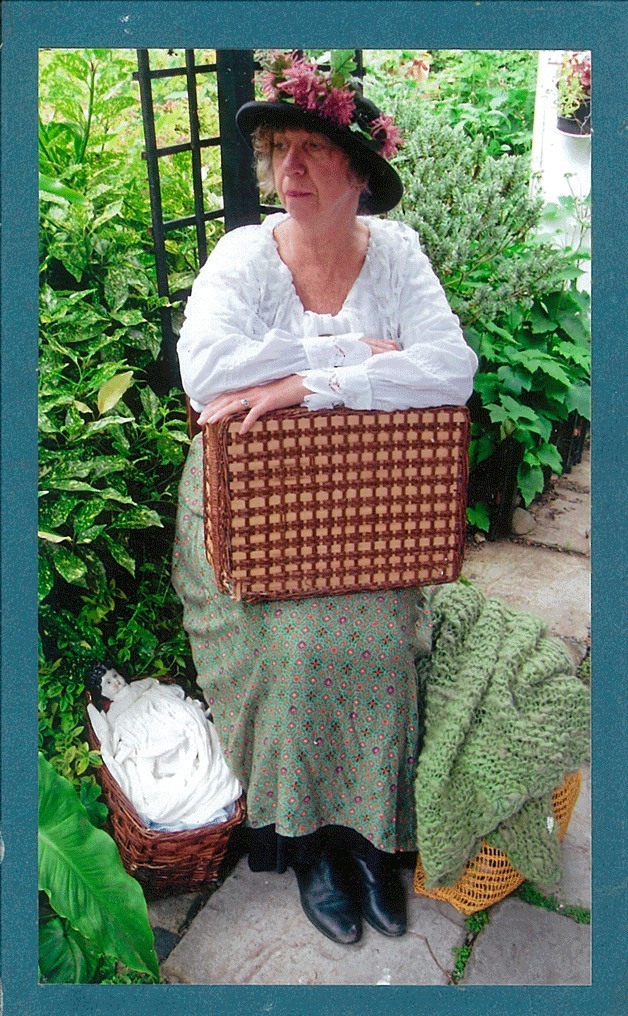What is left behind are the stories that precede and those that are yet to come.
Part-time Langley resident and theater artist Martha Furey spends most of her time in Ireland, the land of the great storytellers.
But she recently returned to Whidbey and brought along the romance of her American ancestors.
The dramatist and actor will perform her latest play “Three Feathers and a Butterfly,” a blend of historical fact and fiction in the Civil War-era story of her great-great-grandmother, Sarah Foster.
The show opens at 7:30 p.m. Friday, Nov. 26 and continues at 7:30 p.m. Saturday, Nov. 27 and at
2 p.m. Sunday, Nov. 28 on the Martha Murphy Mainstage at Whidbey Children’s Theater in Langley.
The play premiered in Ireland earlier this year to a great reception from Irish audiences.
Furey has long been a theater artist who has contributed many performances to the South Whidbey community theater scene. You may remember her onstage recreating the lives of Isadora Duncan, Freda Khalo or Georgia O’Keefe, or as Alice B. Toklas in “Gertrude Stein’s Widow.”
But this idea had been simmering with her for some time, as she thought about the stories that were told to her by her parents and grandparents over the years. Sarah Foster was an American Civil War widow whose story sparked Furey’s imagination.
“I realized that I had a lot of unique information,” Furey said.
“And I decided to explore how the American Indian blood came into my family line, while blending in the historical facts of that period,” she said.
“Three Feathers and a Butterfly” tells of the courage of Sarah Foster who, not yet 30, was left with her two sons on a lonely farm in Kansas without the familiar support and protection of a husband.
Her husband, John Foster, was a Union Soldier who died in Andersonville Confederate prison camp in Andersonville, Ga. As Furey tells it, the prison was a terrible place, where 45 percent of the prisoners died in one year of starvation and malaria.
But that’s only one part of the story.
The tale is told through Foster’s eyes, 30 years after the war has ended.
The story continues for Foster, through the struggle she and other widows faced before and after the war. The time is 1895, and an older Foster recaps how she tries to keep her beloved patch of Kansas, as well as her independence. As she unpacks a lifetime of belongings from a trunk, each object reveals another connection to the past, including the story of her illegitimate daughter by a Cherokee Indian who works for the Fosters after John dies.
“Her name was Martha. She was who I am named after,” Furey said.
The play follows this thread of her family history and the history of what happened to American Indians after the war ended. It’s a sometimes quirky and romantic story, she said, delving into Sarah Foster’s affair with an Indian man, but is also a violent historical account of America during the government- forced move of the Cherokee tribes from Georgia to Oklahoma, which came to be known as the Trail of Tears.
Ultimately, the story of Sarah Foster represents the story of many American Civil War widows who were left to fend for themselves, often dealing with the deserters and traumatized and abandoned soldiers who raided the homes of vulnerable families.
“It took a lot of grit to do what she did,” Furey said of her great-great grandmother.
“All of the women in my family have been survivors. But something always pulls us back from the brink,” she said.
It is this independent and strong spirit that Furey honors in her play.
The play runs for an hour and a half and is fast-paced, colorful, tragic, romantic and full of humor.
All seats are $10. The show is not recommended for young children, and seating is limited. Reserve tickets at 360-914-0912 or 221-7880.


